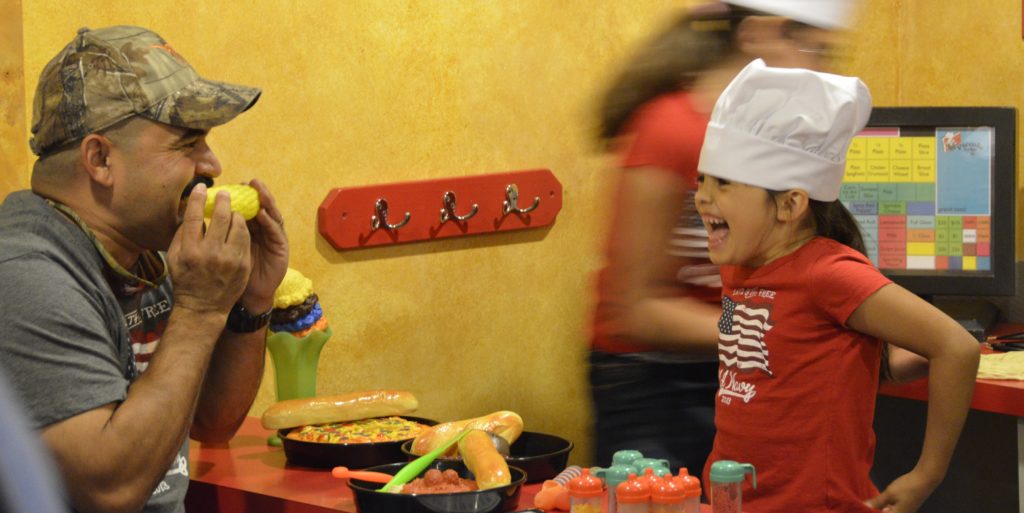
The Power of Play
Written by: Jessica Anderson
As the new year begins, many parents make resolutions, set new priorities and shift routines. But how many of these changes in daily living include increasing children’s imaginative play?
Imaginative play, or pretend play, happens when a child uses his or her imagination to act out a situation based on their experiences and interests, and often includes props.During this type of play, children act out events in a scenario (e.g., restaurant, safari, pirate ship) but there are no set rules or goals. The focus is on creativity.
Research shows there are many important reasons for children to engage in pretend play. Here are a few reasons to prioritize play this year:
1.Play Gets Kids (and Adults) Moving
Child-directed play promotes movement. During play, children constantly move, run, crawl, climb and jump. In a day and age where it is so easy to live an inactive life, researchers suggest that taking time to play can encourage healthy activity and get everyone in the house moving!
2.Play Connects Children and Caregivers
Research shows that play is important for building emotional connections between children and parents, allowing them to build healthy relationships that are a necessary part of child development. These positive connections built through play help both children and parents manage stress well. The moments that caregivers and children spend together stampeding through the living room on horses or playing restaurant servers can make all the difference in building strong and safe bonds.
3.Play Builds Confidence
Play is a safe way for children to practice being adults. Children constantly imagine they have new roles and often pretend they are adults. In the world of pretend play, children can drive the local bus, give their stuffed animal a wellness checkup, parent their baby doll or talk on the phone to a good friend. This kind of play is important for children to take on new roles, practice resiliency and master new skills, routines and ideas. Play gives children a safe place to practice life and build confidence.
4.Play Boosts Social-Emotional Skills
Unstructured play with peers is important for boosting children’s social skills. For example, when two children pretend they are in a bakery, one child might be the cake decorator and the other the customer or the baker’s assistant. Maybe they will decide to switch roles, or in a change of events, they will host a cake party. Even in a simple game, children practice taking turns, figure out what happens next, make decisions and solve problems. Research shows that these skills are important for a child’s development and lead to strong social skills as adults.
5.Play Gets Kids Talking
Research shows that creative play can help children to learn new words in a new setting. For example, when children pretend they are dinosaurs, a unique scene unfolds. In the land of dinosaurs, the kitchen table becomes a cave or the bookshelf a volcano ready to erupt at any minute. Maybe there are dinosaur nests, teeth or tails to talk about. Creative play gives children and parents a unique way to use new words and strengthen language skills.
There are so many strong reasons for giving children time to engage in pretend play. We hope you all have a playful and fantastic 2019!
